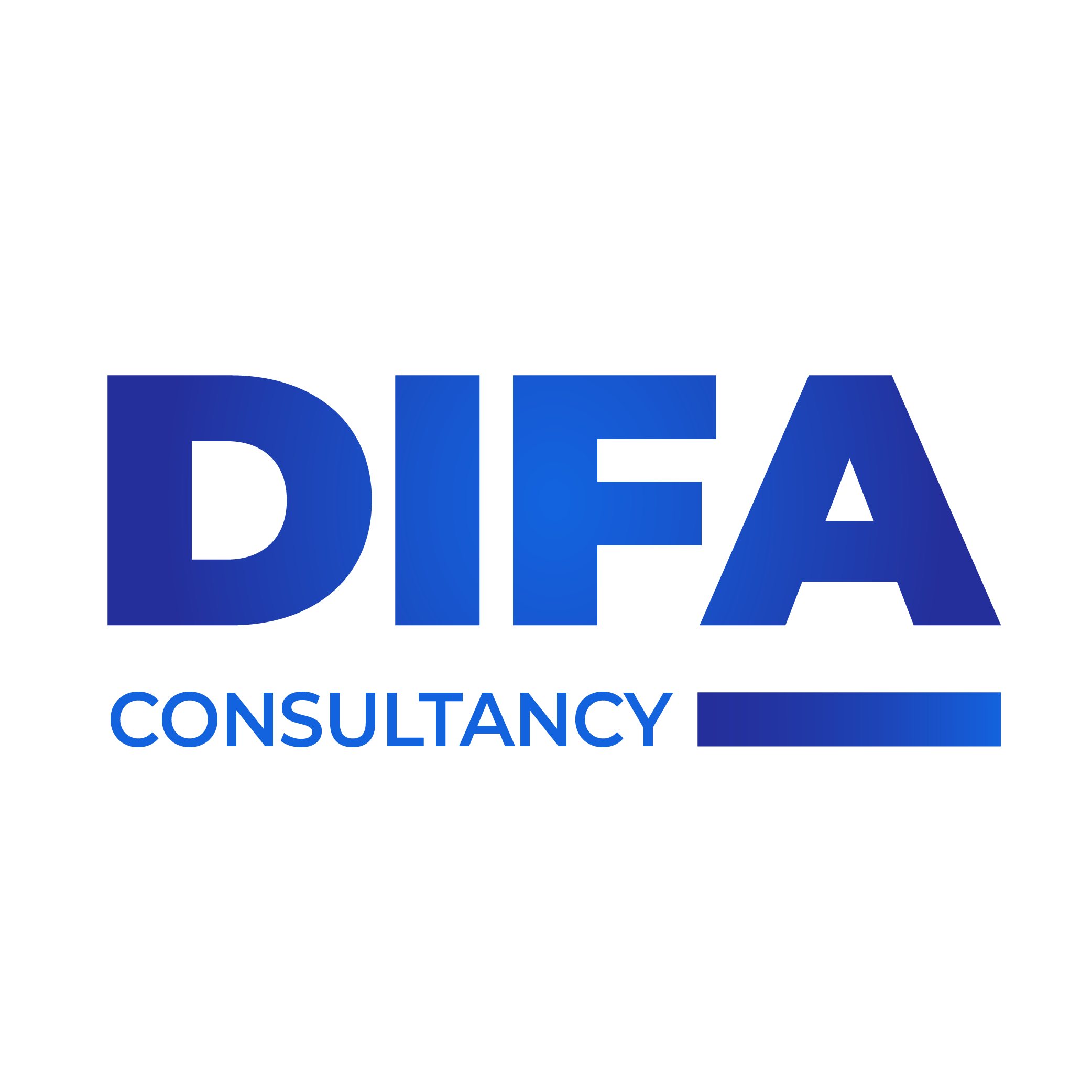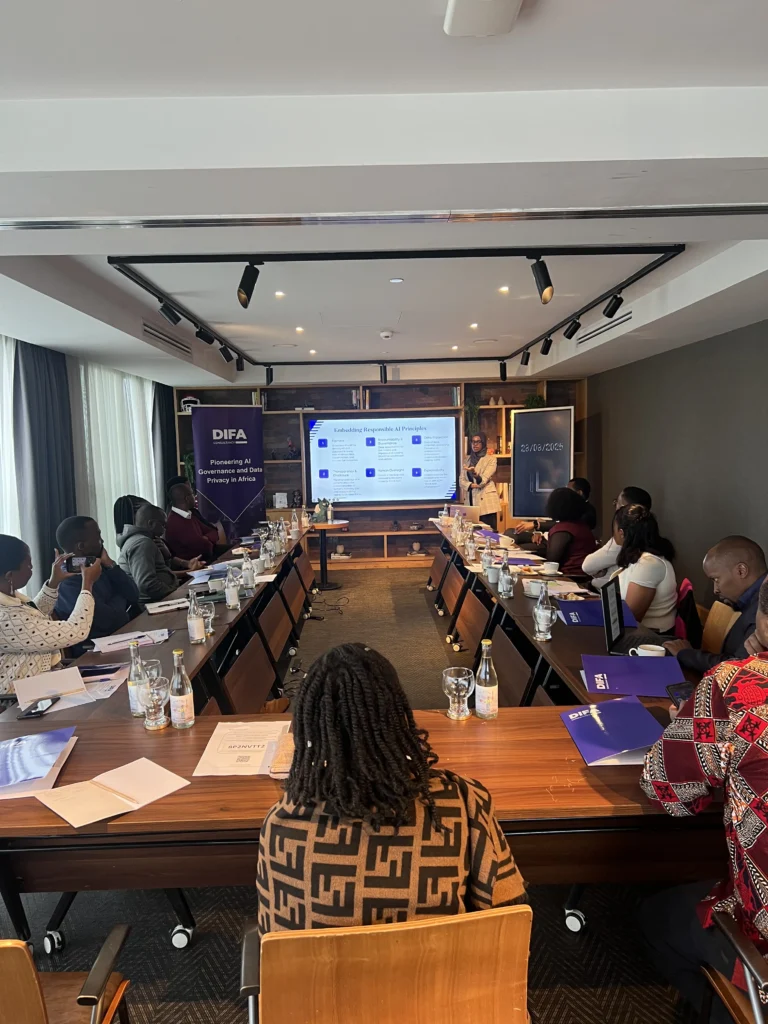
The inaugural Global AI Summit on Africa, hosted in Kigali, Rwanda, brought together a wide range of stakeholders to deliberate on the future of artificial intelligence (AI) across the continent. Organised by the Rwanda Ministry of ICT & Innovation, the Rwanda Centre for the Fourth Industrial Revolution, and the World Economic Forum, the Summit provided a timely platform for advancing Africa’s AI agenda.
DIFA Consultancy experts participated in this high-level convening, engaging in critical discussions surrounding the governance and responsible deployment of AI technologies in Africa.
Key Considerations emerging from the Summit
Several core themes emerged as part of the current regulatory and policy considerations in AI development and deployment in Africa. These include:
1. Robust data governance frameworks
A consistent point of discussion in the Summit was the critical function of data governance in AI development and use. With data being the basis of AI systems, ensuring its secure collection, transfer and use is fundamental. There is a pressing need for harmonised cross-border data regulations across African jurisdictions to unlock AI’s full potential in Africa, whilst addressing national data sovereignty concerns.
2. Privacy compliance and addressing regulatory gaps
Discussions noted that privacy considerations must not be overlooked in the training and development of AI models. Existing data protection laws must guide AI development in the interim as AI specific regulatory frameworks are lacking. This reinforces the importance of “privacy by design” principles and proactive risk management measures of AI systems.
3. Regulatory flexibility through sandboxes
The role of regulatory sandboxes emerged as a practical mechanism for fostering innovation while maintaining oversight. Such structures enable regulators and innovators to co-develop responsive legal frameworks that keep pace with technological advancements, ensuring both agility in regulatory response, and accountability.
4. Addressing infrastructure deficits
The lack of foundational AI infrastructure, particularly data centres and high-performance computing (HPC) resources, remains a significant barrier to scaling AI across Africa. Positively, the Summit saw the announcement of plans to establish data centres across the continent, a move that will be pivotal for supporting the localisation of AI development.
5. Inclusion and fairness in AI Systems
Emphasis was placed on the importance of designing AI models that reflect local contexts and serve diverse user populations. Fair data practices, ensuring that those contributing data also access its meaningful benefits, need to be prioritised to foster trust and equity in AI development and deployment.
6. Supportive AI ecosystem
Talent development, funding, and cross-sectoral partnerships were all identified as key enablers of a vibrant AI ecosystem. Investment in research institutions and talent will be imperative to support local AI solutions tailored to Africa’s unique challenges and opportunities.
Launch of the Africa Declaration on Artificial Intelligence
The key development at the Kigali Summit was the launch of The Africa Declaration on Artificial Intelligence (Africa Declaration), aimed at investing in and skilling local talent, establishing a framework of African open data sets and open AI models while safeguarding the data and strengthening of compute infrastructure.
Guiding principles of promoting shared principles for ethical, trustworthy, inclusive and sustainable AI in Africa are covered in the Declaration. These guiding principles include sovereignty, inclusivity and diversity in African AI design and deployment to the benefit of all African communities. Additionally, it highlights that safeguards of privacy, ethics, transparency and explainability should be promoted while prioritizing human dignity, rights, freedoms and environmental sustainability.
The Africa Declaration proposes the establishment of a $60 billion Africa AI Fund, for the purposes of investment in the development and expansion of AI infrastructure, scaling African AI enterprises, sclaing African AI enterprises and strengthening local AI talent and research capabilities.
The Africa Declaration creates the AI Council for Africa under the leadership of Smart Africa Steering Committee (co-chaired by African Union Commission and the Internationational Telecommunications Union). This body is designed to provide strategic guidance and regional coordination within the global AI economy. It is aimed at promoting high level engagement and strategic alignment with continental and global digital transformation efforts.
Looking Ahead: Toward a Sustainable AI Future
The Kigali Global AI Summit served as a reaffirmation of Africa’s agency in shaping its digital future. For stakeholders in both the public and private sectors, the priority lies in converting Summit commitments into action. DIFA Consultancy remains committed to supporting the development of robust AI policy and governance frameworks that are not only compliant and ethical but also contextually relevant and forward-looking.
For more insights into how DIFA Consultancy supports responsible AI development, deployment and regulatory engagement across Africa, please get in touch with our team.

